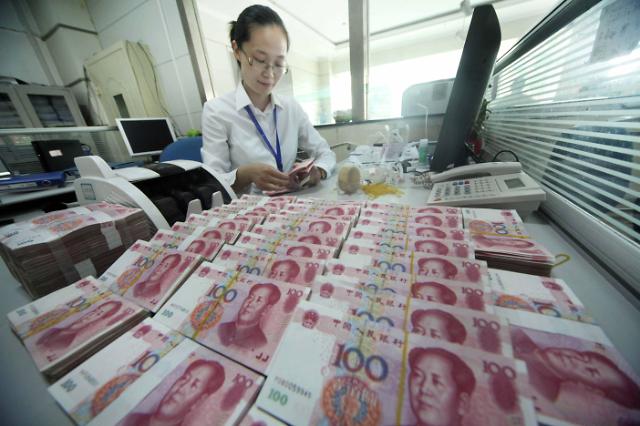
[Courtesy of Xinhua News]
China’s central bank governor has tried to calm market jitters over the country’s falling foreign reserves, saying he saw no basis for continuing depreciation in the yuan.
In an interview published over the weekend in Caixin, the mainland financial magazine, Zhou Xiaochuan, governor of the People’s Bank of China (PBOC), said speculators should not be allowed to dominate market sentiment regarding China's foreign exchange reserves.
His comment was apparently aimed at calm investor sentiment in the mainland markets before trading resumed Monday after a week-long hiatus that saw upheaval in global markets.
Zhou said it was quite normal for reserves to fall as well as rise and there was no basis for the yuan to keep falling. The governor said China would keep yuan stable versus a basket of currencies while allowing greater volatility against the U.S. dollar
He also dismissed speculation that Beijing would tighten capital controls to stem the surging capital outflows from the mainland
The central bank fixed the yuan at its highest rate in over a month Monday. Reflecting the recent retreat in the U.S. currency, the Monday fix of 6.5118 yuan per dollar, was much stronger than the 6.5314 set before the holiday.
China’s foreign reserves fell for a third straight month in January, as the central bank dumped dollars to defend the yuan and prevent an increase in capital outflows.
China’s foreign reserves fell $99.5 billion to $3.23 trillion in January, the lowest level since May 2012, central bank data showed. The size of the drop was second only to the $107.9 billion fall in December, the largest monthly decline on record.
The central bank has tried to prop up the yuan after it staged a surprise devaluation in early August.
Chinese shares fell more than 1 percent Monday as trading resumed after the Lunar New Year break and investors caught up with wild swings in global markets, but the moves were modest given the hefty falls in Japan and other markets during the holidays.
Premier Li Keqiang has said Beijing will not promote exports through currency depreciation, although some policy advisers have been calling for sharper yuan falls.
China reported its weakest economic growth in 25 years for 2015, and Monday it released figures showing imports and exports both fell more sharply than expected in January compared with a year earlier
January exports fell 11.2 percent from a year earlier - the seventh straight month of decline while imports tumbled 18.8 percent - the 15th month of decline, data released by the General Administration of Customs showed on Monday.
Exports declined even though China has allowed the yuan to weaken nearly 6 percent against the U.S. dollar since last August. .
By Alex Lee



![[OPINION] Assessing the trajectory of Chinas Economy: Growth or decline](https://image.ajunews.com/content/image/2024/01/31/20240131173956149557.jpg)
![[OPINION] CEWC 2024: Chinas strategic blueprint](https://image.ajunews.com/content/image/2023/12/21/20231221171623376236.jpg)